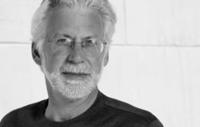John Levin, a collector of early (pre-1900) wax cylinder sound recordings, has selectively transferred portions of his collection to the University of California, Santa Barbara to be preserved and made accessible to the public through the library's renowned Cylinder Audio Archive. 
Early cylinder recordings are an important document of the musical, social, and cultural life before the dawn of mass media during America’s late 19th-century industrialization. Often surviving in small numbers, in a confusing array of takes and dubs, and issued by dozens of companies, these fragile recordings cannot be fully studied and understood until there is a critical mass, accessible in digital form, to a wide audience of scholars, enthusiasts, and the public. Levin is addressing this on two fronts. He is developing CPS1, a new technology to transfer these early recordings with optimal sound quality and negligible wear. Further, his significant collection of early commercial recordings is the foundation that ultimately will make the breadth of early sound history available to the public via the Cylinder Audio Archive.
Levin has also curated two programs for the Cylinder Audio Archive, Incunabula 1891-1898 and Incunabula Two. Both programs explore the earliest recordings made in America, from the very early 1890s, before cylinder recordings were widely sold to the public.
Many titles from his collection are now available online through the UCSB Cylinder Audio Archive. For more information on the collection or assistance in using the materials, please contact Special Collections staff at special@library.ucsb.edu.


